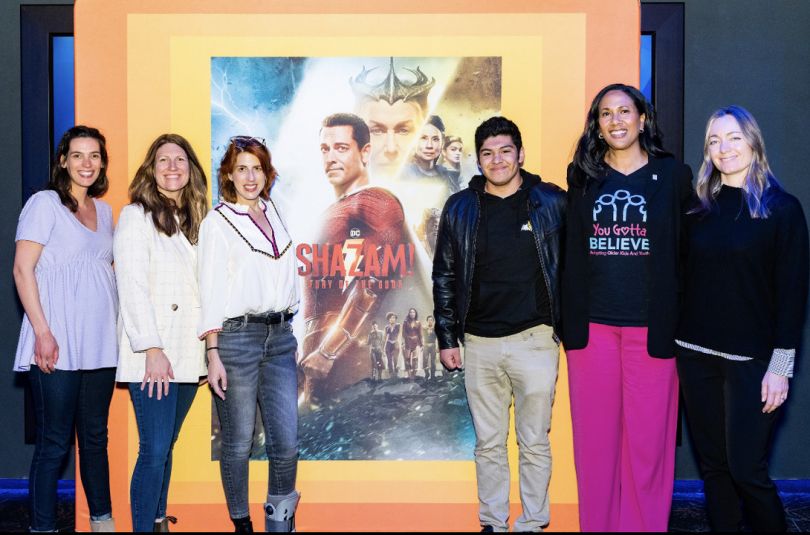Social responsibility informs consumer behavior, strategic business decisions, internal practices and external partnerships.
Approximately 96 percent of companies on the S&P 500 index published corporate social responsibility reports in 2021, according to a 2022 Governance and Accountability Institute report. In 2011, only 20 percent of these companies published CSR reports.
As millennials and Gen Z, who prioritize social responsibility at a higher level than other generations, become more prominent in the workforce, social responsibility will increasingly impact the way businesses operate and brand loyalty forms.
“We know nearly 86 percent of consumers will choose — or boycott — a brand based on values, authenticity and transparency. We built employee and consumer models of engagement that can easily pivot to address current and future social issues,” said Warner Bros. Discovery’s Group VP of Social Impact Solutions Jessica Beatus.
Amid evolving societal and environmental challenges, reactive strategies are inadequate. For Warner Bros. Discovery and NextRoll, a results-driven, proactive approach to social responsibility is proving impactful — in and out of the workplace.

Warner Bros. Discovery is a global entertainment and media company that produces a wide range of television, film and live entertainment.
Which specific values are most integral to your company’s culture and why?
At WBD, we believe in authentic, meaningful connections to each other, to culture and to our consumers. That’s why we empower storytellers who bring our world into focus and create cultural touchstones with the power to draw us together. Our social impact team aligns our employees, our brands and our business practices around pillars: basic human needs, entertainment skills training and environmental stewardship.
We leverage our content to activate our viewers to support organizations helping the most vulnerable populations. We are committed to ending childhood hunger in the United States and food insecurity globally, we rally donations in times of major disasters, and we connect our consumers with mental health and physical well-being resources.
We lead skills training and job placement programs around the world that bring people into the entertainment industry who otherwise wouldn’t have access.
We’re committed to operating an environmentally sustainable business, ensuring a healthier environment for our employees, consumers and communities. We’re dedicated to lowering our carbon footprint, investing in clean energy, taking action on climate change and telling stories that inform and inspire.
Over the last three years, employees and consumers have sought clearer stances from companies in the wake of upheaval and current events. How have those values helped your company respond proactively?
Corporate social responsibility is an evolving concept; we’re seeing movement away from the days when companies invested in communities to ensure they had a positive reputation and employees felt good about where they worked. Often, that resulted in performative philanthropy with muted results.
Innovative impact leaders understand there is incredible untapped potential, business value and brand elevation possible when you leverage all of your platforms, products, business partners and talent to actually move the needle on pressing social issues. We know nearly 86 percent of consumers will choose — or boycott — a brand based on values, authenticity and transparency. We built employee and consumer models of engagement that can easily pivot to address current and future social issues. During Covid-19, we pivoted our childhood hunger program to end hunger for the millions who suddenly became food insecure and are proud to have helped No Kid Hungry provide 1.4 billion meals to families in need. We raised over $15 million to help the people of Ukraine as they cross into the second year of war. Most recently, we’ve been providing support through our partners to the millions devastated by the Syrian and Turkey earthquakes.
It’s impossible to reach your dreams when you don’t have access to basic needs.”
What advice would you give to leaders who want to shift their social responsibility approach from reactive to proactive? What specific actions can help embed company values more deeply into their culture?
There’s a desire from investors, consumers, employees and, in our case, advertisers and affiliates, to have a clear strategy around how our business doesn’t just act responsibly but makes it easy for consumers and other stakeholders to join us in solving some of the most pressing social issues of our time. You need to know what your consumers and employees expect of you and then use your platforms and brand voice to exceed those expectations. WBD has a massive footprint — we reach everyone from DC superfans to CNN news enthusiasts and Food Network loyalists, plus anyone who watches golf, basketball, wrestling and even cricket.
What all of our brands have in common is talent that’s reached their dreams — actors, athletes, directors, set designers and more who have been able to share their visions and stories. At WBD, we’ve centered our lens on the issues that unite us. It’s impossible to reach your dreams when you don’t have access to basic needs. It’s also what unites us as humans — we all need food, shelter and access in order to even get to the starting line of success. We believe in uniting our brands, talent, employees and viewers in joining us to achieve our specific social impact goals.
Adtech company NextRoll creates marketing technology powered by machine learning and data integration.
Which specific values are most integral to your company’s culture and why?
At NextRoll, we strongly believe in transparency, accountability, diversity, equity and inclusion. These values are embedded in our company’s culture, and we strive to embody them in everything we do.
Transparency is essential for us to build trust with our employees and customers. We believe in open communication and bringing the company along on the journey. By communicating often about our successes and misses, we all unite as a team to move forward and meet our goals.
Accountability means we take responsibility for our actions and outcomes and we’re committed to learning and continuous improvement. Our leaders are approachable and instill confidence in our Rollers that together we are building the best workplace for Rollers and best products for our customers.
We value DEI and strive to create a workplace where all Rollers feel respected, included and valued. We know a diverse workplace lends itself to innovation. So by investing in DEI, we’re creating a better product for our customers and a dynamic work environment that also provides a sense of belonging to all Rollers.
Over the last three years, employees and consumers have sought clearer stances from companies in the wake of upheaval and current events. How have those values helped your company respond proactively?
At NextRoll, we’re committed to standing up and speaking out to support our communities — both inside and outside the company. We speak on issues that impact our Rollers and align with our internal values. And we don’t just talk the talk; we have a history of setting ambitious DEI goals and moving toward them. For example, we’ve increased the percentage of women in management year-over-year from 32 percent in 2017 to 47 percent in 2022. We have done this through ongoing efforts to mitigate bias in our talent acquisition process. Today, we’re continuing these efforts by embarking on projects that dismantle inequity in our processes and in our industry.
Based on feedback from our internal and external stakeholders, we’ve increased our investment in social impact programs and initiatives, including philanthropy, community engagement and corporate social responsibility. And we’ve done this thanks to efforts created by our employee-led NextRoll Gives Back program.
By responding proactively to social and political issues, we’re staying true to our value of doing right by our customers and our community.
We’ve increased our investment in social impact programs and initiatives, including philanthropy, community engagement and corporate social responsibility.”
What advice would you give to leaders who want to shift their social responsibility approach from reactive to proactive? What specific actions can help embed company values more deeply into their culture?
Leaders should start by developing a clear vision and strategy for their approach to social responsibility. This includes defining the company’s values and how they will be translated into action. And don’t shy away from the tough topics; if you say you care about diversity, equity and inclusion, set clear goals, track them and report your updates to the company.
Leaders should also engage with key stakeholders such as employees, customers and the community to understand their concerns and priorities. Look for opportunities to develop partnerships and joint initiatives that can drive systemic change. This can help to build a more meaningful and collaborative approach to social responsibility.









